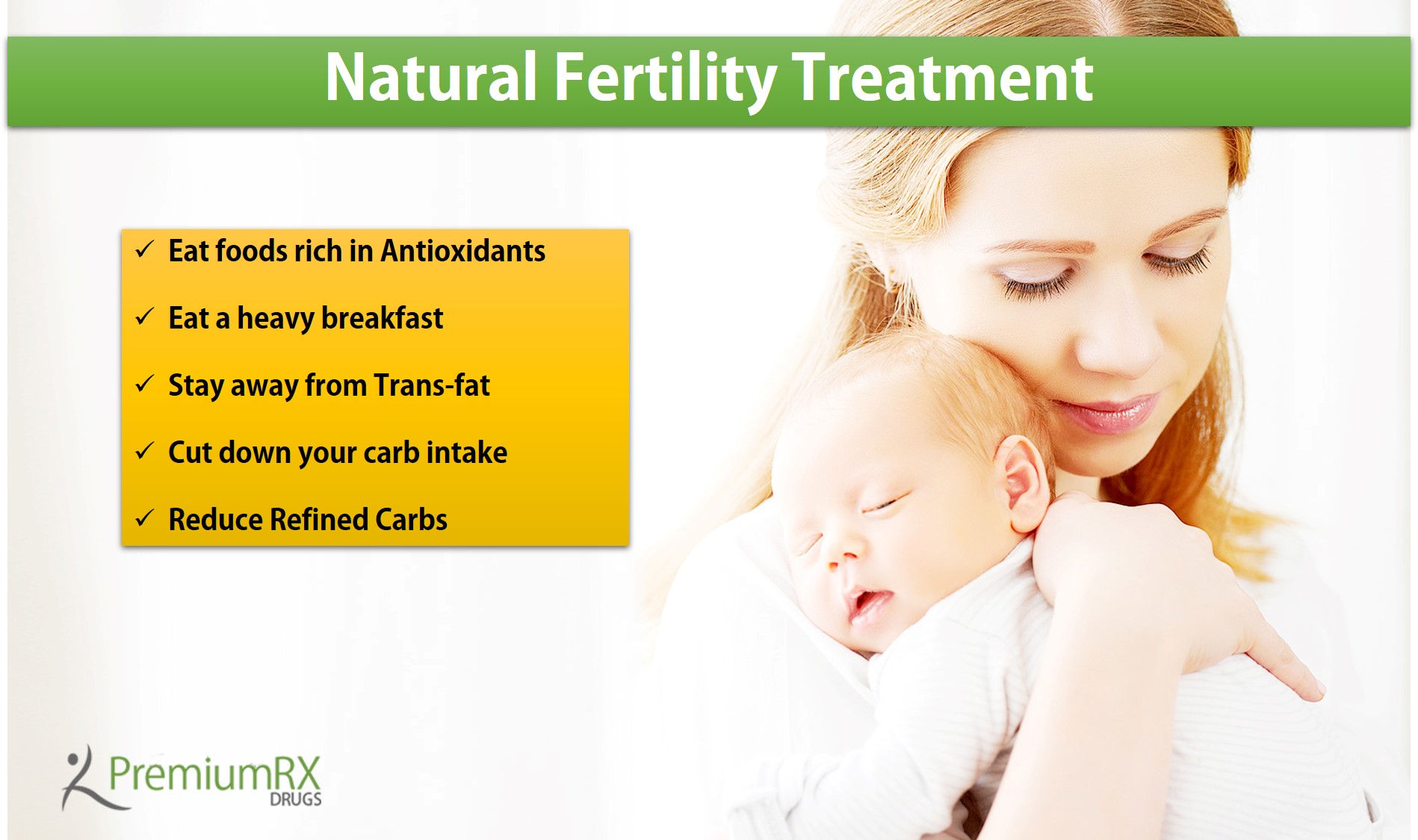A diagnosis of infertility does not always mean childlessness. It can often mean that conceiving as a couple is a challenge for you, which fertility treatments can aid. Natural treatments offer hope and assist medical treatments for the best results. Data suggests that diet and lifestyle changes can help to increase fertility by up to 69%.
Infertility is treatable with certain treatments; the natural options are also successful in treating infertility successfully in many cases. As per research, almost 15% of couples are found to be affected by fertility issues. Specific natural ways can help women increase fertility and get pregnant.
The desire to have a child is natural and most women plan pregnancy at some point in their lives. Although conceiving or childbirth may seem the easiest thing in the world, it is not for many couples. This information guide explores the implications of infertility and treatment options. You will get to know the effects it can have on you, your physical health, mental well-being, sexuality, and relationships. It also outlines several effective ways in which a couple can deal with infertility issues. I hope this informative guide will be of use to you.
Fertility issues have become a significant condition in gynecological centers. If data is to be collected, the number of couples facing fertility problems varies from one in six to one in ten, with 9% considered the global average. Medical experts define infertility as the inability of a woman to conceive after having unprotected intercourse for one year. Females who are unable to remain pregnant may also have infertility. As other treatments like IVF remain inaccessible or unaffordable for most infertile couples across the world, they may utilize natural fertility treatments. Luckily, a few natural treatments enhance fertility and help you become pregnant faster. Check out these natural ways to boost fertility and support pregnancy.
- Eat foods rich in antioxidants – Antioxidants like zinc and folate are considered useful in improving fertility in both men and women. These are believed to deactivate free radicals present in the body, which can cause damage to sperm in men and egg cells in women. In a research study, men who ate 75 grams of walnuts rich in antioxidants per day were found to have improved sperm quality. Another study revealed that people using antioxidant supplements had higher chances of conception. Foods such as vegetables, citrus fruits, nuts, and grains are great sources of beneficial antioxidants like vitamins C and E, beta-carotene, lutein, and folate. An antioxidant-rich diet helps improve the fertility rate, especially among men dealing with fertility problems.
- Eat a heavy breakfast – Some research suggests that eating a bigger breakfast and a small evening meal can improve fertility. It was found that eating a heavier breakfast may improve the hormonal effects of polycystic ovary syndrome or PCOS, a major contributing factor towards infertility; for women with PCOS who carry a healthy weight, eating most of the calories during breakfast may cause a significant reduction in insulin levels and testosterone levels in the body. A study report reveals that such women ovulated 30% more than those who ate a small breakfast and a bigger dinner. Note that while increasing the size of your breakfast, reduce the size of your evening meal.
- Stay away from Trans-fat – If you want to boost your fertility levels, avoid foods that contain trans-fat instead of including healthy fats such as extra virgin olive oil to your diet for boosting fertility. Trans fat is linked with an increased risk of ovulation problems due to the negative effects on insulin sensitivity. Transat is found in fried foods, baked goods, and processed foods. Several studies found that a diet high in trans fat and low in unsaturated fats was associated with infertility.
- Cut down your carb intake—Experts or nutritionists generally recommend a low-carb diet for women with PCOS. A low-carb diet may improve hormone levels linked with fertility, especially in women with PCOS. The benefits of having a low-carb diet start with a healthy weight, reduced insulin levels, weight loss, and a regular menstrual cycle. According to a research study, as carb intake increases, the risk of infertility also increases.
- Reduce refined carbs- Regarding carbohydrate intake, it is not just the amount that matters but also the type of carb you are considering. Refined carbs such as sugary food and beverages, bread, rice, and pasta may be especially problematic. The reason may be that these carbs absorb quickly, which may cause a spike in blood glucose and insulin levels. Raising insulin levels may increase the risk of infertility and make it harder for you to get pregnant.
- Get active- Studies linked a sedentary lifestyle with infertility, and exercise can boost fertility. Exercise may have many benefits for your health, including increased pregnancy.
Conclusion
Proper nutrition is essential for maintaining a healthy body and reproductive system. Studies have shown that being active and eating a nutritious diet, along with making positive lifestyle changes, can boost fertility and prepare your body for a successful pregnancy.
Marie
Latest posts by Marie (see all)
- Revize Micro Gel 0.025% | Uses, Price, Side effects - April 9, 2025
- What is Evalon Cream: How to Apply, Benefit, who Can Use - April 4, 2025
- Understanding Avanair 200 mg: A Comprehensive Guide - April 4, 2025




